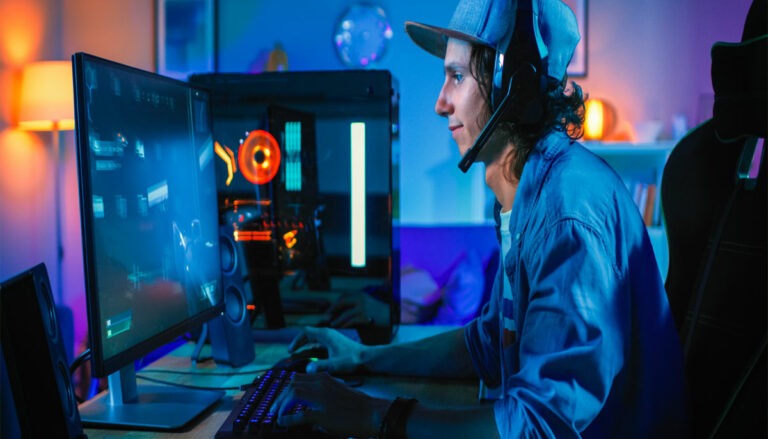If you suck at video games, you might not want to try this…The founder of Oculus, Facebook’s virtual reality system, claims he’s invented a VR headset that will kill a player for real if their avatar dies in the game.
If you die in the game, this VR headset kills you for real
The idea of dying for real if killed in a video game has been used as the plot of many horror films and sci-fi movies. And now, a famous VR inventor claims to have created a headset that will actually kill the user if they die in the game.
Palmer Luckey, the founder of Oculus (see below), now part of Facebook’s Meta, claims to have perfected a working model of a “killer” VR headset.
Given the troubling title of NerveGear, 30-year-old Oculus founder Palmer Luckey has created this terrifying device that seems like something straight out of the horror series franchise Saw. The VR headset contains three explosive charge modules that are aimed at the user’s forehead, the New York Post reported.
Should the player’s avatar die in the game, it will trigger a microwave emitter in the headset, igniting the explosives and obliterating the wearer’s head.
Luckey explained how this lethal VR headset works in a blog post.
“I used three of the explosive charge modules I usually use for a different project, tying them to a narrow-band photosensor that can detect when the screen flashes red at a specific frequency, making game-over integration on the part of the developer very easy,” Luckey explained. “When an appropriate game-over screen is displayed, the charges fire, instantly destroying the brain of the user.”
The inspiration behind the idea
Luckey says an anime webcomic from the mid-2000s, Sword Art Online, was a major inspiration behind this project, Yahoo reported.
Consequences: Raising the game stakes
“The idea of tying your real life to your virtual avatar has always fascinated me – you instantly raise the stakes to the maximum level and force people to fundamentally rethink how they interact with the virtual world and the players inside it,” Luckey wrote. “Pumped-up graphics might make a game look more real, but only the threat of serious consequences can make a game feel real to you and every other person in the game.”
Not for sale, but predicts others will invent similar devices
Luckey explained how he secretly developed it.
“[I] was able to hide from his employees, regulators, and contract manufacturing partners,” Luckey boasted. “I am a pretty smart guy, but I couldn’t come up with any way to make anything like this work, not without attaching the headset to gigantic pieces of equipment.”
The device is not for sale, but Luckey predicts others will try to invent similar devices.
“At this point, it is just a piece of office art, a thought-provoking reminder of unexplored avenues in game design,” Luckey said. “It is also, as far as I know, the first non-fiction example of a VR device that can actually kill the user. It won’t be the last.”
Luckey said he wants to keep experimenting with the technology used in “killer” headsets. He said he wants to explore the idea of an “anti-tampering” headset that a user would not be able to remove or destroy. This definitely sounds like something from Saw; however, it also has cringing vibes of the worst of US government DARPA or CIA experimentation.
What is Oculus?
Oculus was founded by Palmer Luckey in 2012, along with Brendan Iribe, Michael Antonov, and Nate Mitchell, and developed a VR headset for video gaming known as the Oculus Rift. Oculus was acquired by Facebook in March 2014, became Reality Labs, and is now part of Meta Platforms (Facebook’s parent company).
Luckey sold Oculus to Meta for $3 billion in 2014 at the age of 21, the Daily Mail reported.





